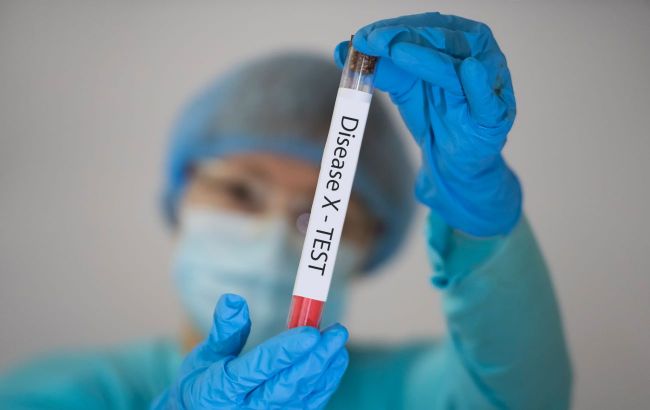Deadly disease X: Symptoms, prevention, and is it really worse than COVID?
 What is known about the new disease X (RBC-Ukraine collage)
What is known about the new disease X (RBC-Ukraine collage)
Disease X is a new infection that is to be discussed at the World Economic Forum in Davos.
Sources used: World Health Organization, CREID, National Library of Medicine.
What is known about Disease X
In February 2018, the World Health Organization (WHO) created the name Disease X to replace an unknown hypothetical pathogen that could trigger an epidemic in the future.
Disease and pandemic
After the discussion at the World Economic Forum, Disease X was criticized on social media for planning for a fictional situation. A community of more than 300 scientists met in November 2022 to study an unknown pathogen that could cause a horrific international epidemic that would see death rates 20 times higher than those of Covid-19.
The hypothetical threat, known as Disease X, is a term used by scientists to help develop protective measures that include vaccines as well as tests that would be implemented in the event of a future outbreak.
What is Disease X and how dangerous is it?
In 2015, the World Health Organization (WHO) developed the Epidemic Prevention Research and Development Plan to shorten the interval between the detection of a viral outbreak and the approval of a vaccine.
The focus was on the most dangerous infectious diseases that emerge with scant means of prevention.
As a substitute for a known unknown pathogen, WHO introduced Disease X in 2018, tasking the organization with study and planning.
The goal is to create ready-to-use services for diagnostic tests and vaccines with a focus on viral infections.
In 2020, an article was published in The Lancet Infectious Diseases, which expanded the term to include pathogen X and identified opportunities for international coordination and product development.
Remdesivir is an antiviral drug being tested by Gilead Sciences for potential use in disease X.
Reader Sivir, a COVID-19 drug in trials, was described by The Daily Telegraph in April 2020 as an antiviral drug that Gilead Sciences began developing a decade earlier for potential use in disease X.
Research Institute of Disease X
In August 2023, the UK government established a research institute to conduct research and vaccination against potential pathogens of disease X.
Potential source of disease X
Due to the possibility of spreading in the form of a pandemic or the lack of available countermeasures, these pathogens are considered a priority by the WHO, which maintains a list of them.
It includes:
- Crimean-Congo hemorrhagic fever
- COVID-19
- Ebola
- Marburg virus
- Lassa fever
- Zika virus
- Nipah virus
- Rift Valley fever
- Middle East respiratory syndrome (MERS)
- Severe acute respiratory syndrome (SARS)
- Zoonotic viruses
- Bacterial infection
Symptoms of disease X
Symptoms appear suddenly and may include fever, muscle cramps, fainting, neck pain, back pain, headache, swollen eyes, and sensitivity to light.
You may also experience nausea, vomiting, abdominal discomfort, diarrhea, and sore throat. This may be followed by mood swings and confusion.
After a few days, the excitement may turn into drowsiness and anxiety, and the liver may become enlarged.
Additional signs and symptoms include heart palpitations, swollen lymph nodes, and petechial blisters on the skin and internal surfaces of the saliva, such as in the mouth and throat.
After the fourth or fifth day of illness, patients may develop organ failure. In the second week of the disease, some patients die. After the ninth or tenth day of illness, most survivors begin to recover.
How many people are dying from the X pandemic?
Medical experts estimate that Disease X could kill up to 50 million people. As COVID-19 becomes an increasingly common and recurring health problem, UK healthcare professionals are now preparing for a possible new pandemic.
This material is for informational purposes only and should not be used for medical diagnosis or self-treatment. Our goal is to provide readers with accurate information about symptoms, causes, and methods of detecting diseases. RBС-Ukraine is not responsible for any diagnoses that readers may make based on materials from the resource. We do not recommend self-treatment and advise consulting a doctor in case of any health concerns.

